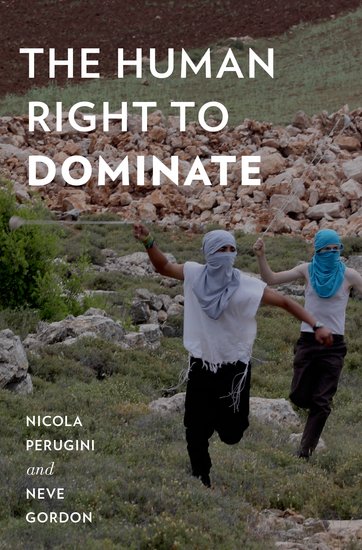Like this article? Chip in to keep stories like these coming.
![]()
For many of us, human rights are somewhat like puppies: fluffy, benevolent things, a source of unalloyed happiness and good (although perhaps somewhat lacking in the tooth department). All upsides, no downsides; the world is an incontestably better place with them in it.
Critical scholarship on human rights, however, raises a host of serious questions about the ability of human rights to achieve or promote justice.
Are human rights actually a valuable tool for the marginalized? Or are they simply another weapon in the arsenal of the powerful?
How do we understand the invocation of human rights in support of military ventures in Afghanistan and Iraq (especially given the long history of appeals to international law to rationalize colonialism and warfare)?
Are such uses of rights arguments to justify violence a perversion of the truly liberatory nature of human rights: a misappropriation, a distortion? Or is there something intrinsic to the construction of human rights that lends itself to projects of domination, oppression, and exclusion?
How does reliance on human rights constrain our thinking on the possibilities for a just future?
Nicola Perugini and Neve Gordon take up these questions in their new and excellent book The Human Right to Dominate, which focuses on Israel’s use of human rights and international law to legitimate violence: to kill and to colonize. “The welding of military clout with forms of humanism, including human rights,” as Gordon and Perugini observe, “has become a prominent feature of contemporary global politics.”
One salient site where this welding has occurred is the crucible of Israel/Palestine; Israel relies on legalistic and humanistic arguments to defend its settler colonial project in Palestine. This deployment is not simply an abuse of human rights, the authors argue, but a product of the inevitably political and power-laden nature of human rights.
From their inception, human rights have always been entangled with structures of power, and so available to “oppressors [who] can claim, reshape, and translate human rights […] in order to rationalize the perpetuation of domination.”
The very creation of the state of Israel in 1948 was considered reparation for the massive crimes committed against Jews in the European Holocaust. The paradoxical non-universality of human rights is evident here: “this reparation assumed the form of a settler nation-state (in Palestine) whose colonial practices generated new human rights violations.”
Moreover, the longer history lying behind the Holocaust, of “systematic mass killing along racial lines [which] was first developed in the European colonies before being redeployed in the continent,” was erased.
Israel’s founding shows how human rights may be used to legitimize and invisiblize colonial violence: elevating some as subjects of human rights, while disappearing others.
The First Intifada (uprising, starting in December 1987) enabled international recognition of Palestinians as victims of human rights violations: “Palestinians in the West Bank and Gaza Strip slowly gained access to the international ‘circle of victims’ of human rights violations, producing a new situation whereby human rights claims were no longer the prerogative of the Jewish population.”
However, this reframing of Israel’s violence as breaches of Palestinian human rights has not been without cost. “In the absence of an international body able to enforce international human rights conventions,” Perugini and Gordon point out, “cause lawyers and activists remained trapped in the paradox of human rights whereby the colonized had to resort to the colonizer’s court to seek protection” — and this is a judiciary that has largely discharged Israel of responsibility for its violations.
Furthermore, the focus on isolatable rights infringements redirects attention away from the underlying structures of domination, hiding the tidal forces for the waves.
If human rights and international law have been ineffective in challenging the structural underpinnings of settler colonialism, they have also been employed by Israel to strengthen these same structures. Israel claims adherence to international law in its colonial project, in order to promote its onslaughts of fatal violence as legal, legitimate, and ethical: “to become morally sound, civilized, and legitimate, sovereign violence has to be framed as corresponding with the standards of the new human rights regime and transmuted into a discourse of human rights.”
Conversely, demonization of Palestinians as recalcitrant transgressors of international law and human rights is used to justify the application of civilizing violence against them. For example, the allegation that Hamas illegally exploits Palestinian civilians as human shields is cited to rationalize Israel’s killing of these civilians as legitimate military targets. (Direct and disproportionate killing of civilians is normally prohibited by the international laws of war.)
Violence is not always antithetical to human rights, but is represented as sometimes (or even often) necessary to safeguard them. And domination is not always opposed by human rights, but is also frequently enabled by them.
This dynamic is not new. Since its birth, international law has been used to legitimize some forms of violence (colonial oppression in the era before decolonization, for example) and delegitimize others (anti-colonial resistance during this same period).
Given the alliance of international law and human rights with hegemony, can they ever be used counter-hegemonically?
For Gordon and Perugini, human rights can be used to forward emancipation, if they are conceptualized as one element in a broader political struggle to dismantle structures of oppression. Only then may human rights “help create new political communities based on justice, instead of oiling an unrecoverable apparatus of injustice.”
Azeezah Kanji is a graduate of University of Toronto’s Faculty of Law, and a Master of Laws Candidate at the School of Oriental and African Studies, University of London.



